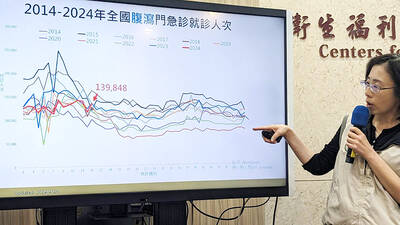Lawmakers in the US Senate and House of Representatives on Wednesday introduced companion resolutions calling on US president-elect Joe Biden to enter a free-trade agreement with Taiwan — a move welcomed by Taipei.
US Senator Pat Toomey, a Republican, introduced the resolution in the Senate, while 25 other Republican senators cosponsored it.
“Building closer trade ties between the United States and Taiwan is a win-win for both countries,” Toomey said in a news release.
With an agreement, both economies would grow faster, and the US would strengthen its relationship with a key regional ally and increase its economic engagement in the Indo-Pacific region, he said, urging the incoming Biden administration to prioritize such a deal.
A similar resolution was introduced in the House by US Representative Guy Reschenthaler, also a Republican. The House resolution had six sponsors, including Congressional Taiwan Caucus Chairs Steve Chabot and Mario Diaz-Balart.
“This legislation is a critical step toward building a stronger diplomatic partnership with Taiwan, expanding economic growth and job creation through increased access to markets in the Indo-Pacific region, and countering the Chinese Communist Party’s hostilities toward Taiwan,” Reschenthaler said in a separate news release.
Ministry of Foreign Affairs spokeswoman Joanne Ou (歐江安) yesterday thanked the US lawmakers for their robust support for expanding bilateral trade ties.
In December last year, 161 US representatives across parties wrote to US Trade Representative Robert Lighthizer, urging him to start negotiations on a bilateral trade agreement, she said.
The US’ Taiwan Allies International Protection and Enhancement Initiative Act, enacted in March, also supports improved trade ties between Taipei and Washington, she added.
Taiwan would continue to seek support for a bilateral trade pact from various sectors in the US, while deepening bilateral trade relations through different platforms, Ou said.
Despite warming relations between Taipei and Washington, a bilateral meeting under the Trade and Investment Framework Agreement, mainly overseen by the Office of the US Trade Representative, has not been held since October 2016.
“I’m not going to enter any new trade agreement with anybody until we have made major investments here at home and in our workers,” Biden told the New York Times on Dec. 2.
He later named Katherine Tai (戴琪) — who was born in Connecticut to Chinese-born parents who lived in Taiwan and were naturalized in the US in 1979 — to be his trade representative.
Tai’s judgements on trade issues would likely follow the traditional stance of the US Democratic Party, the ministry has said.

FLU SEASON: Twenty-six severe cases were reported from Tuesday last week to Monday, including a seven-year-old girl diagnosed with influenza-associated encephalopathy Nearly 140,000 people sought medical assistance for diarrhea last week, the Centers for Disease Control (CDC) said on Tuesday. From April 7 to Saturday last week, 139,848 people sought medical help for diarrhea-related illness, a 15.7 percent increase from last week’s 120,868 reports, CDC Epidemic Intelligence Center Deputy Director Lee Chia-lin (李佳琳) said. The number of people who reported diarrhea-related illness last week was the fourth highest in the same time period over the past decade, Lee said. Over the past four weeks, 203 mass illness cases had been reported, nearly four times higher than the 54 cases documented in the same period

A group of Taiwanese-American and Tibetan-American students at Harvard University on Saturday disrupted Chinese Ambassador to the US Xie Feng’s (謝鋒) speech at the school, accusing him of being responsible for numerous human rights violations. Four students — two Taiwanese Americans and two from Tibet — held up banners inside a conference hall where Xie was delivering a speech at the opening ceremony of the Harvard Kennedy School China Conference 2024. In a video clip provided by the Coalition of Students Resisting the CCP (Chinese Communist Party), Taiwanese-American Cosette Wu (吳亭樺) and Tibetan-American Tsering Yangchen are seen holding banners that together read:

Heat advisories were in effect for nine administrative regions yesterday afternoon as warm southwesterly winds pushed temperatures above 38°C in parts of southern Taiwan, the Central Weather Administration (CWA) said. As of 3:30pm yesterday, Tainan’s Yujing District (玉井) had recorded the day’s highest temperature of 39.7°C, though the measurement will not be included in Taiwan’s official heat records since Yujing is an automatic rather than manually operated weather station, the CWA said. Highs recorded in other areas were 38.7°C in Kaohsiung’s Neimen District (內門), 38.2°C in Chiayi City and 38.1°C in Pingtung’s Sandimen Township (三地門), CWA data showed. The spell of scorching

UNAWARE: Many people sit for long hours every day and eat unhealthy foods, putting them at greater risk of developing one of the ‘three highs,’ an expert said More than 30 percent of adults aged 40 or older who underwent a government-funded health exam were unaware they had at least one of the “three highs” — high blood pressure, high blood lipids or high blood sugar, the Health Promotion Administration (HPA) said yesterday. Among adults aged 40 or older who said they did not have any of the “three highs” before taking the health exam, more than 30 percent were found to have at least one of them, Adult Preventive Health Examination Service data from 2022 showed. People with long-term medical conditions such as hypertension or diabetes usually do not